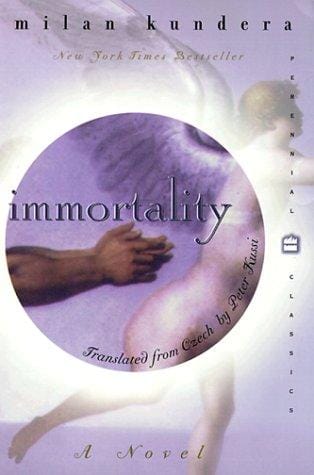Why John Williams’ Novel “Stoner” Is a Quiet Masterpiece
John Williams’ novel “Stoner” transforms an ordinary professor’s life into a profound meditation on work, love and resilience. Discover why it’s a modern classic.

Introduction
John Williams’ 1965 novel “Stoner” spent decades as an obscure back-catalog title before a wave of critical rediscovery in the early 2010s turned it into an international bestseller. Far from a hazy tale about cannabis culture, “Stoner” is the surname of William Stoner, a humble farm boy who becomes an English professor and lives what appears, on the surface, to be an unremarkable life. Yet within the novel’s 278 pages lies a profound meditation on work, love, disappointment, and the quiet dignity of perseverance. This article explores why “Stoner” has earned its reputation as a modern classic and why readers continue to find solace and meaning in its pages.
Plot Overview
The story follows William Stoner from his rural upbringing near Columbia, Missouri, through his unexpected awakening to literature at the University of Missouri, to his long, often lonely career as a professor. He marries Edith Bostwick in a union marked by mutual misunderstanding, clashes with departmental rival Hollis Lomax, and finds brief, transformative love with a graduate student named Katherine Driscoll. Despite professional setbacks and personal hardships, Stoner remains quietly committed to teaching and to the written word. His life closes in introspective solitude, yet the novel leaves readers with the sense that great meaning can reside in seemingly ordinary existence.
Character Study: William Stoner
Part of the novel’s enduring power lies in its protagonist’s ordinariness. William Stoner is not a heroic scholar, nor is he a charismatic rebel; he possesses no exceptional talent beyond a steadfast loyalty to literature. Williams writes him with unflinching realism: Stoner is passive at times, stubborn at others, and often fails to articulate his emotions. Yet his restraint and integrity turn banal moments—grading papers, preparing lectures—into acts of quiet heroism. In Stoner, many readers see a reflection of their own compromises and sacrifices, making his victories, however modest, feel deeply personal.
Equally compelling is how secondary characters illuminate Stoner’s personality. Edith’s emotional volatility, Lomax’s petty vindictiveness, and Katherine’s intellectual warmth serve as mirrors that reveal Stoner’s core values: patience, honesty, and devotion to craft. Through these relationships, Williams showcases the subtle ways ordinary lives intersect and shape one another.
Themes That Resonate
The Value of Work
“Stoner” argues that fulfillment can come from labor pursued with sincerity rather than from external recognition. Stoner never rises beyond assistant professor, yet his dedication to teaching and scholarship grants him an inner sense of purpose. The novel suggests that meaning is forged in the doing, not in the applause.
Love and Isolation
Williams portrays love as both transformative and transient. Stoner’s brief affair with Katherine offers a glimpse of harmony, yet societal pressures drive them apart. Conversely, his marriage to Edith reveals how emotional distance can grow even in physical proximity. Through these contrasts, the novel explores how intimacy and alienation coexist within human relationships.
Time and Mortality
The narrative’s calm, chronological march underscores the impermanence of life. Seasons change, academic terms end, and friends pass away, echoing the universal passage of time. Stoner confronts mortality not with grand gestures but with acceptance, reminding readers that daily acts can be profound when time is finite.
Style and Narrative Technique
Williams’ prose is deceptively simple. Sentences are clear, economical, and rhythmic, mirroring Stoner’s unadorned character. This clarity allows emotional undercurrents to emerge organically, making moments of pain or joy all the more affecting. The omniscient third-person narrator maintains a compassionate distance, providing insights into characters’ inner lives without moralizing. The result is a narrative voice that feels timeless, allowing readers from any era to connect with the story.
Cultural Impact and Rediscovery
Upon its 1965 release, “Stoner” received modest reviews and quickly went out of print. Its revival began in 2003 when New York Review Books Classics reissued it, and sales exploded after a 2013 article in The New Yorker praised it as “the greatest American novel you’ve never heard of.” Word of mouth, support from high-profile authors like Ian McEwan and Julian Barnes, and translations into dozens of languages propelled “Stoner” onto bestseller lists worldwide. Universities incorporated it into curricula, and readers’ groups championed its quiet power, demonstrating that literary merit can triumph over initial neglect.
Critics also note that “Stoner” fills a cultural appetite for stories centered on everyday lives rather than sensational plots. In an age of digital spectacle, the novel’s refusal to sensationalize resonates as an antidote to noise, encouraging slow, contemplative reading.
Why You Should Read "Stoner" Today
If you’ve ever questioned whether your daily efforts matter, “Stoner” provides a resounding, if understated, answer. Its portrait of perseverance amid disappointment speaks to students facing uncertain futures, professionals battling workplace politics, and anyone seeking validation beyond public accolades. Moreover, the novel serves as a masterclass in concise storytelling and character development, making it as instructive for writers as it is rewarding for general readers.
Reading “Stoner” also offers a lens through which to examine academic life, gender roles, and social expectations in early-twentieth-century America—issues that continue to evolve yet still echo in contemporary debates. By engaging with the text, modern audiences can trace the lineage of cultural change while recognizing enduring human concerns.
Conclusion
“Stoner” exemplifies how literature can elevate the ordinary to the extraordinary. Through clear prose and compassionate insight, John Williams turns the life of a seemingly unremarkable man into a universal exploration of purpose, love, and resilience. Whether you are a seasoned bibliophile or a casual reader seeking depth, this quiet masterpiece invites you to contemplate what it means to live a good life—and suggests that greatness often hides in plain sight.



